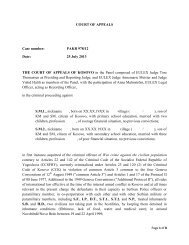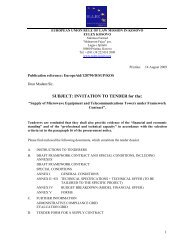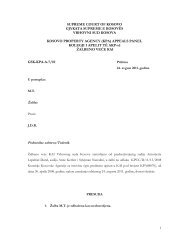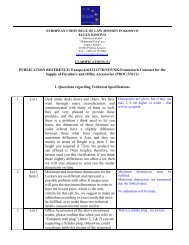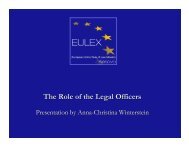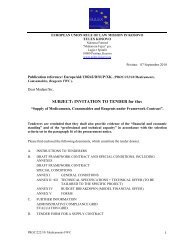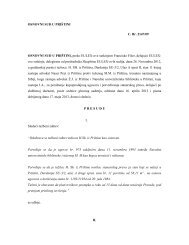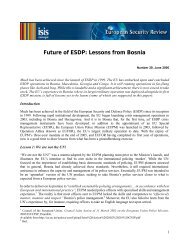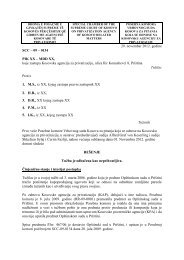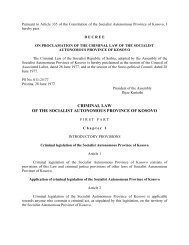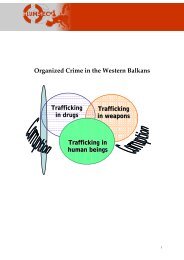English - Eulex
English - Eulex
English - Eulex
Create successful ePaper yourself
Turn your PDF publications into a flip-book with our unique Google optimized e-Paper software.
“no violation of criminal law … in the first judgement which affirmed the responsibility of the defendant<br />
for the crime charged …” 11 The Court concluded that the “concept of criminal responsibility [was] correctly<br />
applied in the challenged verdict.” 12 The appeal panel concluded that the claims of the defence counsel<br />
concerning basic violation of criminal procedure; erroneous corroboration of factual situation and violation<br />
of criminal law were unfounded. The appeal panel therefore rejected the appeal and confirmed the first<br />
instance verdict in its entirety.<br />
***<br />
The summaries above demonstrate the complexity of the criminal cases inherited from UNMIK. These cases<br />
involved multiple criminal charges including those of participating in a group that commits a criminal act;<br />
murder and aggravated murder in complicity with other persons, carried out in a malicious way, in brutal<br />
or insidious, wanton and violent manner; illegal possession of weapons and ammunitions; causing general<br />
danger; etc. The 20 criminal cases inherited from UNMIK at the Supreme Court level have already been<br />
concluded. The last verdict in such a case was rendered by the Supreme Court on 19 January 2010. The<br />
completion of the UNMIK legacy at the SC was achieved in close cooperation with the Kosovo Supreme<br />
Court judges. The EULEX judges at district court level and their local colleagues are also moving towards<br />
completing this goal, and it is expected that the UNMIK cases at all DCs will be completed in the first half<br />
of 2010.<br />
The remaining sections of this chapter will provide an overview of cases which were not part of the UNMIK<br />
legacy but were nevertheless taken over and adjudicated by the EULEX judges in the exercise of their<br />
secondary/subsidiary competence in criminal proceedings in accordance with the Law on Jurisdiction.<br />
2) Exercise of the powers of the President of the Assembly of the EULEX<br />
Judges under the Law on Jurisdiction – analysis of decisions and<br />
statistical data<br />
a ) Legal basis of the powers of the President of the Assembly of the EULEX Judges<br />
As it has already been explained in this report, EULEX judges exercise judicial functions in Kosovo Courts<br />
in accordance with the Law on Jurisdiction (“LoJ”) which provides EULEX judges with primary/exclusive<br />
competence and secondary/subsidiary competence. The subsidiary competence of the EULEX judges<br />
occurs only when the crime concerned has not been investigated or prosecuted by the SPRK.<br />
Subsidiary competence can be exercised at the request of the EULEX prosecutor assigned to the case, or<br />
any of the parties to the proceeding, or at the written request of the President of the competent court<br />
“where the provisions related to the disqualification of a judge … are not applicable” 13 . In the case of a<br />
request, the President of the Assembly of the EULEX Judges is given the authority for any reason “when<br />
11 ftn. 9<br />
12 ftn. 9<br />
13 Art. 3.3, Law on Jurisdiction<br />
27



